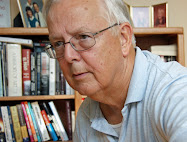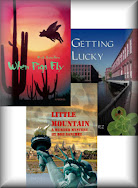We self-publishers fight a lonely battle, finding readers for our wit and wisdom. We write alone, and now we sell alone and search for ways to market our work. How do we entice readers to open their wallets?
Those questions are often premature. Before asking how you’re going to cope with all those book orders, you need to make sure you have a quality product. So here are ten tips to make your book, fiction or non-fiction, the best it can be.
#1 Use a spell-checker, but only as a first line of defense. Then you look for misspellings the spell-checker won’t catch, such as then/than, to/too/two, tail/tale, or its/it’s.
#2 Read your manuscript critically, as though you weren’t the author. Some things to check include complete chapters, well-organized paragraphs, complete sentences, and accurate punctuation.
#3 Be consistent. If you capitalize a word once in the text, chances are you always want to capitalize it. Decide whether you want one space or two at the end of a sentence, and stick with it. Never change your font or type size without good reason. If your work consists of more than one file, be sure that every file is formatted identically.
#4 Get honest, competent critiques. Leave your mother and spouse alone; your family has better things to do than fawn over your work. Avoid critiques from anyone who has an emotional stake in making you happy, because that isn’t what you need. The Internet Writing Workshop (http://internetwritingworkshop.org) is an excellent source of constructive, informed criticism.
#5 Use your judgment. Even good critiquers may give you conflicting advice. Remember that it’s your project, so the final decision is always yours.
#6 Refer to a style manual such as the Chicago Manual of Style, which is the most widely accepted guide for standard writing.
#7 Make a style sheet. A novel or other large manuscript can involve lots of small stylistic decisions by the author. Keep a pad of paper with a running list things you don’t want to have to keep looking up. For example, a cartoon I liked showed a bank robber writing a note and asking the teller, “Is holdup one word or two?” Think of words you often misspell or don’t know how to capitalize, and write them correctly on the list.
#8 Follow your publisher’s guidelines religiously even if they don’t insist.
#9 Repeat tip #2.
#10 Review the publisher’s proof carefully. When you receive the publisher’s proof isn’t the time to look for typos; you should have done that already. At this stage, the publisher may even charge you if you fix many of your own mistakes at this stage. Instead, look for their errors. Are illustrations in their proper places? Are pages and chapters numbered properly? Look at every page’s overall appearance. Is each one properly aligned? Is any text missing?
If you follow these simple (but not always easy) tips, I can’t guarantee best-sellerdom for your book, but I can promise you this: Your book will be far superior to the vast majority of self-published books. You will have a quality product.








 By the way, a reader emailed me today and called When Pigs Fly an "absolutely fun and utterly impossible book." Sigh. Words like that are beautiful music.
By the way, a reader emailed me today and called When Pigs Fly an "absolutely fun and utterly impossible book." Sigh. Words like that are beautiful music.
















